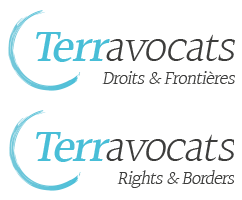From talent passport to talent card
The transformation of France’s professional immigration policy, marked by the adoption of Law no. 2024-42 of January 26, 2024, represents a significant shift in the way France views the attraction and integration of international talent. Under the aegis of President Emmanuel Macron, this law aims to fine-tune existing arrangements by introducing the “talent” card, replacing the previous system of “talent passports”.
From name to substance: changes introduced by Law no. 2024-42
Elimination of the name “Passport” and unification of categories
To avoid confusion, the legislative reform eliminates the name “passport” in favor of “talent”, and unifies three categories under the title “talent – salarié qualifié” (“talent – qualified employee”), in accordance with article L. 421-9 of the Code de l’entrée et du séjour des étrangers et du droit d’asile (CESEDA). This multi-annual permit, valid for four years, can be issued on condition of qualification or seniority within a company or group.
Creation of the “Talent – Medical and Pharmaceutical Profession” card
A notable innovation of the law is the introduction of a specific residence permit for healthcare professionals, detailed in article L. 421-13-1 of the CESEDA. This card, also valid for four years, is intended for doctors, dentists, midwives and pharmacists with qualifications from outside the European Union, to meet the pressing needs of French hospitals.
Issuing conditions and benefits for families
The law lays down conditions for the issue of such permits based on academic level (diploma equivalent to a Master’s degree), innovation (employment in innovative companies), or intra-group mobility. Adherence to the values of the Republic, as demonstrated by the signature of a charter of republican values and secularism, is an essential prerequisite.
It also introduces the “talent famille” card, facilitating family reunification and promoting the successful social integration of foreign talents and their families.
The legislation governing the “Talent” card distinguishes several categories of beneficiaries, including
Highly qualified employees (holders of an “EU Blue Card”),
Researchers and scientists,
Company founders,
Carriers of innovative economic projects (recognized by a public body),
Economic investors,
Corporate officers,
Renowned artists,
Health professionals with foreign diplomas, as part of the 2024 reform.
For example, a foreign national can apply for a multi-annual residence permit bearing the new “talent-porter de projet” label (formerly “passeport talent-création d’entreprise”) for a period of 4 years, in order to set up a business in France.
To qualify, the project owner must meet one of the following conditions:
a diploma equivalent to a Master’s degree or at least 5 years’ professional experience at a comparable level, as well as a real and serious business project;
an innovative business project recognized by a public body;
a direct economic investment in France.
Comparison between the Talent Passport (2016) and the Talent Card (2024)
Points in common between the Talent Passport (2016) and the Talent Card (2024):
Attractiveness objective: Both schemes aim to make France more attractive to international talent, by offering simplified reception conditions and administrative procedures for certain categories of foreign professionals.
Multi-annual residence permits: Both allow the issuance of multi-annual residence permits, facilitating the mobility and professional stability of foreign talent in France.
Beneficiary categories: Both schemes cover a wide range of professionals, including highly qualified employees, researchers, entrepreneurs, economic investors, and other profiles making a significant contribution to the French economy or culture.
Differences between the Talent Passport (2016) and the Talent Card (2024):
Consolidation of statuses: The Talent Passport was a key step in bringing together numerous previously dispersed statuses (such as the European Blue Card, the Competence and Talent Card, etc.) under a single banner.
The 2024 reform builds on this by retaining the principle of simplification, but updating the categories and conditions to reflect the current needs of the labor market and French society.
Introduction of new categories: The 2024 reform introduces adjustments to the categories of beneficiaries, notably with the specific creation of a “Talents – Medical Professions and Pharmacies” card for healthcare professionals with foreign diplomas, demonstrating a desire to adapt the scheme to evolving sectoral needs.
Issuing conditions: Although the general eligibility criteria remain similar (qualifications, economic or cultural contribution to France, etc.), the reform clarifies the issuing conditions, application procedures and rights associated with each category, with a view to optimizing them and making them more effective.
Administrative simplification and clarity: The 2024 reform also aims to further clarify and simplify the administrative procedures for obtaining the “Talent” card, thus meeting the objective of facilitating and attracting foreign talent.
Despite this, the introduction and evolution of the “Talents” card reflects France’s ambition to establish itself as a magnet for world-class professionals. The legal aspect of this scheme, notably through article L313-20 CESEDA and subsequent texts, offers a precise and facilitating framework for foreign talents aspiring to contribute to France’s economic, scientific and cultural dynamism.
The Immigration Act of January 26, 2024 now stipulates that foreign nationals of non-member countries of the European Union, the European Economic Area (Iceland, Liechtenstein, Norway) or the Swiss Confederation may not operate as sole traders if they do not hold a residence permit authorizing them to do so (art. L 526-22, para. 2 of the new French Commercial Code, applicable since January 28, 2024).

Comments are closed.